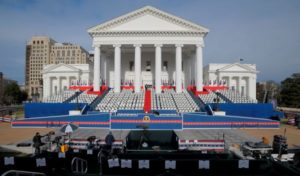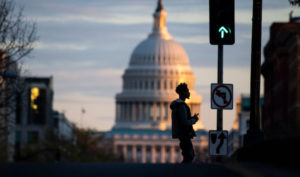Jimmy Carter, The Great Deregulator
By pushing for deregulation and adopting other reforms, President Carter left an enduring legacy on the U.S. regulatory system.
Tax Tax Revolution
Scholars argue that implementing a global minimum tax would help solve the tax competition issue.
Virginia Charts a Path Forward on Regulatory Modernization
New agency sets example for state and federal agencies to follow in analyzing regulatory costs and benefits.
Video Teleconference Platforms in Credibility Determinations
Scholars caution against judging credibility over video calls in immigration hearings.
Control Over Litigation and Agency Rulemaking
Private rights of action lead agencies to seek greater policy control through rulemaking.
Rapid Responses to Major Questions
Scholar proposes a new fast-track legislative procedure to affirm agency regulatory authority.
Outcome-Based Cooperative Regulation
The key to improving regulation rests with strengthening its capacity to reinforce productive cooperation.
The Adjudicatory Capacity to Make Decisions
Scholar suggests that increasing the number of support staff would improve the accuracy of administrative adjudication.
What is the Future of Regulatory Policy?
The OECD’s latest Regulatory Policy Outlook is the most forward-looking yet.
A Regulatory Reboot Cannot Neglect Artificial Intelligence
The OECD should offer recommendations on the full potential and risks of artificial intelligence in rulemaking.
Implementing Risk-Based Regulation
Countries should implement risk-based approaches to regulatory management and decision-making.
Building Independent and Accountable Regulators
OECD data shed light on the governance of economic regulators.












